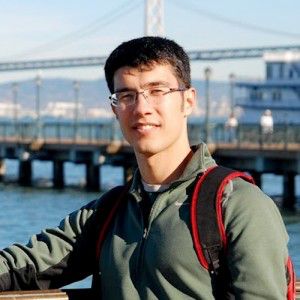
After protests broke out over the alleged fraud in the Russian preliminary election, Graduate School of Arts and Sciences student Mikhail Panko decided to join a worldwide effort to promote political transparency.
“We believe that there is a corrupt system that Putin is sponsoring, but we don’t put that on the website,” he said. “Putin’s party members are there, and we have observers who support him, and as long as they use the tools properly, that’s fine.”
Panko, who studies neuroscience, and a group of friends created a website to track how many points each candidate receives in presidential election March 4, which incumbent Vladimir Putin won.
The website, grakon.org, a miniature social network, allows people to monitor the ballots in Russian elections. Panko said users can choose to participate anonymously.
“I really like Russian culture, but I’m sad about the struggles people go through, especially in terms of how society is right now with bureaucracy and hardships,” Panko said. “There is little political freedom.”
After the preliminary election on Dec. 4, Panko said people began to rise for their rights and realized it does not have to be this way.
“Many people were changed by the election situation in December,” Panko said. “People are starting to fight for their political rights, and this was perfect soil for this kind of project.”
However, during Sunday’s election, Putin won by about 64 percent, a result that Panko said may be unfair.
“Out of 95,000 protocols, they collected about 4,000, but it’s different from what Putin’s reporting,” Panko said. “You have another level of falsification, which is changing the figures, which is very ridiculous.”
Panko said the website does not push for any particular candidate and is dedicated to long-term electoral changes.
“There’s nothing political about it, and we want it to be completely open,” Panko said. “We’re planning to make dumps on our database and code names of people, so that anybody can download data and analyze it by themselves.”
Panko, who first came to the U.S. as an exchange student in high school, returned four years ago to begin his doctorate program.
“It’s kind of like a different world for me,” Panko said.
Panko graduated from the Moscow Institute of Physics and Technology and studied at BU because neuroscience programs are not as well funded in Russia, and it’s hard to publish in high-profile journals, he said.
People working on the website with Panko are based in the U.S., the United Kingdom, Germany and Moscow, Panko said.
Sergey Kopylov, the chief web developer, said the website is the most intensive project he has ever participated in.
“In just two months we managed to build a highly motivated team, provide the necessary tools for people and become one of the big players among the projects, related to elections in Russia,” Kopylov, a student at Lancaster University in Lancaster, U.K., said in a phone interview.
Panko has done a good job of organizing and motivating the team as they worked on the strategy and new directions of the project, Koploy said.
“In such a project, you can’t do everything on your own, but you can always rely on the other members of your team,” he said.
While Putin was the reported winner, Panko said he doubts the strength of the prime minister’s leadership.
“The government is as good or as bad as people let it be,” Panko said. “Putin always says that it’s either him or the country goes into chaos, but I think he’s just trying to scare people.”
This is an account occasionally used by the Daily Free Press editors to post archived posts from previous iterations of the site or otherwise for special circumstance publications. See authorship info on the byline at the top of the page.



